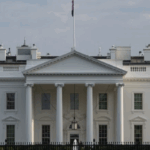The uncertain future of TikTok in the United States has led to a surge in unofficial downloads of the popular social media app, as users seek alternative methods to install it on their devices.
Despite a Supreme Court ruling upholding a law that could force TikTok to be sold or banned, an executive order from former President Donald Trump has allowed its continued use in the U.S. However, Apple and Google have blocked new downloads of the app from their official stores, prompting many users to turn to “sideloading”—a method of installing apps through third-party platforms rather than authorized app stores.
One such service, Signulous, reported that 120,000 users have downloaded TikTok through its platform, with peak rates exceeding 2,000 downloads per hour. Neil Pomperleau, a representative from Signulous, noted that the ban has significantly increased traffic to the company’s website.
“One of the most popular apps in the world can only be sideloaded in the U.S., so it’s been a good thing for us with record traffic and a spike in customers,” Pomperleau told the BBC.
In addition to sideloading, many users are utilizing virtual private networks (VPNs) to bypass restrictions by making it appear as if they are accessing TikTok from countries where the app remains available, such as Canada. Google data shows that search engine queries for “VPN” reached an all-time high last month, further indicating the lengths users are willing to go to retain access.
Numerous YouTube tutorials explaining the sideloading process have also gained significant traction, amassing hundreds of thousands of views in recent weeks. Experts suggest that these trends highlight the difficulties in enforcing a potential nationwide ban, should a final decision on TikTok’s fate be made in April.
Legal and Security Concerns
Although it is currently not illegal for individuals to download TikTok, U.S. lawmakers have ruled that distributing the app violates the law. However, both Trump and his successor, Joe Biden, have signaled that they do not intend to enforce this ruling strictly.
Unofficial app marketplaces such as Signulous operate in a legal grey area by enrolling customers in software developer accounts, which allows them to install apps outside of Apple’s and Google’s official ecosystems. These services often charge a fee—Signulous, for instance, requires an annual payment of $20. However, sideloading carries increased risks, including exposure to faulty or malicious software due to the lack of official oversight.
“The law on the books states that TikTok is not allowed to be distributed in the U.S., but we’re operating on a sort of pinky swear from two different U.S. presidents that they won’t enforce it,” said Pomperleau, acknowledging the uncertainty surrounding his business.
TikTok itself appears to have accepted this workaround, recently releasing a download kit to facilitate sideloading on Android devices, where the practice is more common than on iPhones. Meanwhile, another sideloading service, AppDB, has recorded nearly 95,000 TikTok downloads and doubled its membership since the ban, according to company figures shared with the BBC.
Apple has long maintained that sideloading poses a security threat, arguing that apps should be vetted and verified through its official App Store. The tech giant charges a 30% commission on App Store transactions, a fee it justifies as a safeguard for consumer protection. While Apple has resisted sideloading, recent European Union regulations have forced the company to allow alternative app stores within the EU, signaling a shift in policy for some regions.
With a final decision on TikTok’s fate expected in the coming months, it remains to be seen whether official restrictions will curb its usage—or if users will continue to find ways around the ban.
















